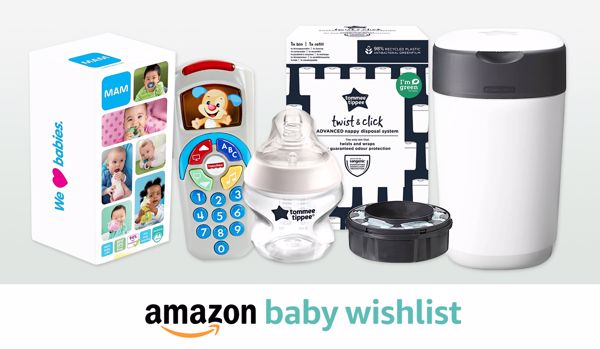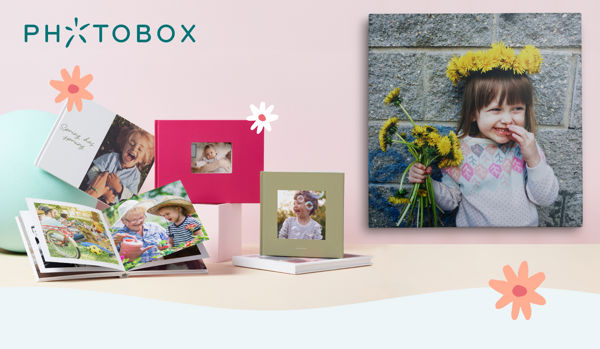Teething can be really distressing for some babies! But the good news is there are things you can do to help make them more comfortable.
Every baby is different, and what works for one baby may not necessarily work for another - you may have to try a few different things until you find one that works well for your baby.
Below is some information on the common symptoms of teething and also some hopefully helpful tips to help soothe your teething baby!
Symptoms of Teething
Sometimes, a tooth may appear without your little one showing symptoms at all. In other cases, teething symptoms could include:
Excess Dribbling
It is common for a baby to drool or dribble more than usual when teething. Excess dribbling may cause a mild rash around the mouth.
Rash Around the Mouth
This is caused by excessive dribbling. A rash may appear around your baby’s mouth and chin. To help prevent a rash, gently wipe your little one's face often to keep it free of saliva.
Red Cheek(s)
One or both of your baby’s cheeks may be flushed.
Chewing or Sucking on Things
Chewing or gnawing helps massage your baby’s gums to ease the pressure from their tooth as it’s trying to cut through.
Disturbed Sleep
Pain and discomfort from teething may cause your baby to wake through the night and struggle to go to or stay asleep at nap time.
Pulling At/Rubbing Ears
Ear pulling when teething is more common than you’d think. Providing it’s not accompanied by a fever, runny nose or coughing (cold-like symptoms that can indicate a possible ear infection).
Sore And/Or Red Gums
The patch of gum above the tooth that is trying to erupt may look sore and inflamed.
Soothing Your Teething Baby
Teething Rings
Teething rings give your baby something to chew on safely. They can help to ease discomfort and distract them from any pain they may be experiencing.
Some teething rings that are available to purchase can be placed in the fridge to be cooled - these teething rings may provide some relief by helping to soothe their gums.
Teething rings that can be cooled will come with instructions detailing the chill time and how to clean them.
It is important to never put a teething ring in the freezer as it could damage your baby’s gums. To stay safe, never tie a teething ring to a string that’s looped around your little one's neck or clip onto their top/bib.
Is Your Baby Chewing and 6 Months or Older?
One of the big telltale signs that your little one is teething is that they’ll chew on their fingers, fists, toys or any other objects they can get hold of.
If your baby is currently weaning and is six months or older, you can offer them healthy things to chew on. Foods like raw vegetables and fruit - carrots and apples. Soft fruits like watermelon can help to soothe their gums, too.
Breadsticks or a piece of bread crust can be just as satisfying for your baby too.
It is important to always watch your baby when they are eating in case they choke.
Sugar-Free Painkilling Medicine
If nothing else seems to be helping your baby and they appear to be in pain, paracetamol and ibuprofen can be given to help relieve symptoms of teething in babies and infants - aged three months and up.
Always follow the instructions that come with any medicine, and if you’re unsure, it’s best to contact and speak to your GP, health visitor or pharmacist.
Teething Gels
If you decide to try a teething gel to help relieve teething symptoms, it is important to use a gel that is designed for babies and young children.
Teething gels contain a mild local anaesthetic and are available to buy at chemists.
Comforting Your Teething Baby
Hugs and cuddles can help comfort your baby while they are teething. Talking to them in a soothing voice can provide comfort and may help to distract them from the irritation.
Playing with your baby and introducing new toys and songs can also help to take your baby’s mind off of the discomfort that teething may bring.
Gently rubbing your little one's gums with a clean finger may also provide some relief.
Caring for Your Baby’s Teeth
It is important to start looking after their teeth straight away as your baby will need these teeth until they get their adult teeth!
You might find brushing a little tricky at first, especially if your little one isn’t cooperating. It also doesn’t matter if you don’t get it “right” or do a perfect job of brushing their tooth/teeth at first. It’ll get easier as it becomes part of their daily routine, and you’ll both get better at it with practice!







